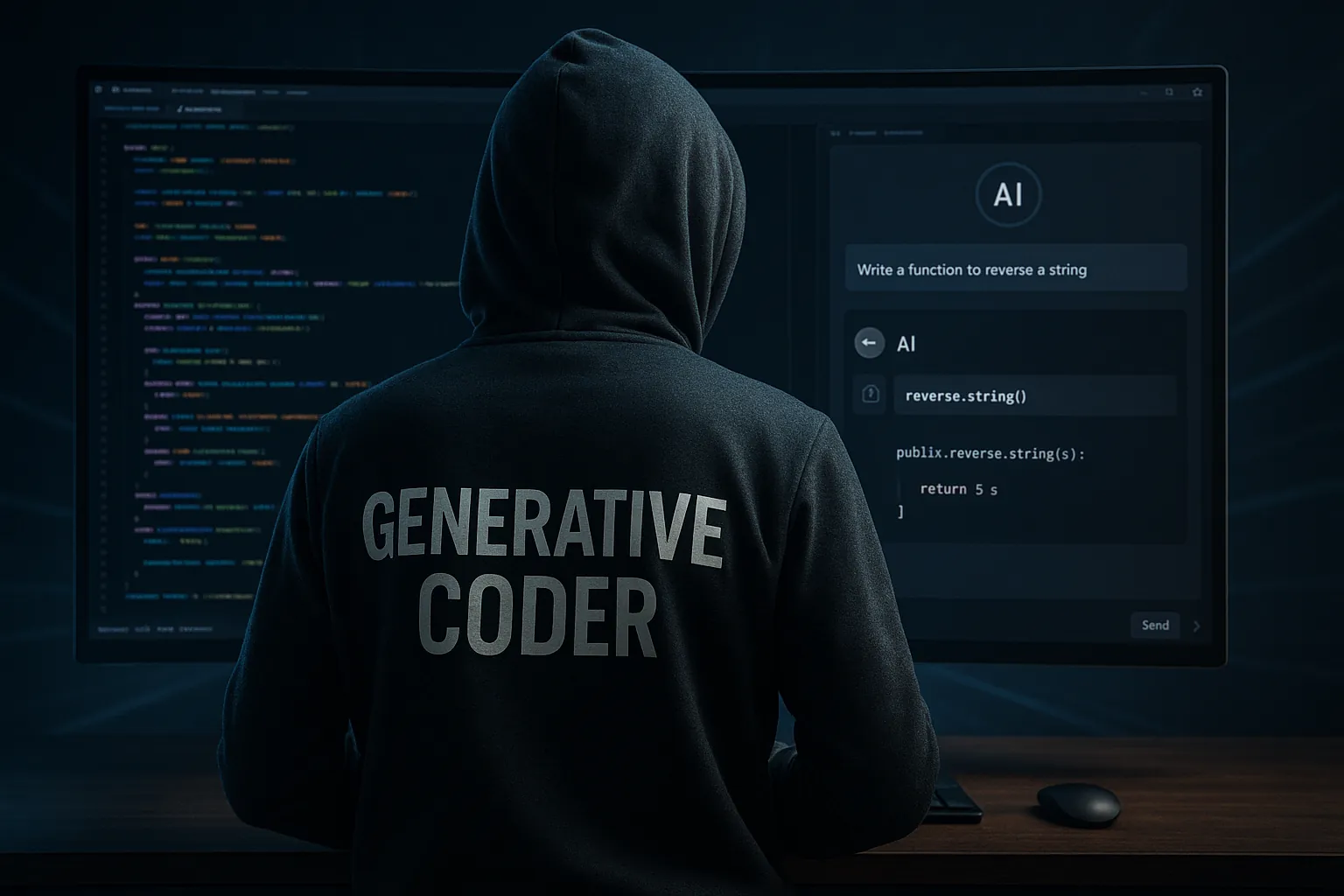Beyond 'Developer': Finding Our Role in the Age of AI Code Generation
4 min read

The ground is shifting beneath our feet. As software creators, we've always thrived on evolution, but the current AI revolution feels different. It's not just a new framework or a faster compiler; it's a fundamental change in how we build and, perhaps, who we are. The tools are no longer just passive instruments; they're becoming active collaborators. This inevitably leads to a question many of us are pondering: What do we call ourselves now, and what does our development process truly look like?
The Old Labels on New Bottles
For years, titles like "Software Developer," "Frontend Engineer," or "Backend Specialist" served us well. They signified a craft honed through manual coding, deep dives into specific languages, and a direct, line-by-line translation of logic into machine instructions.
But when a significant portion of that code can be suggested, drafted, or even fully generated by an AI assistant, do these titles still capture the essence of our work? We're spending less time on the minutiae of syntax and more on high-level design, intent specification, critical review, and the intricate dance of integrating AI-generated components. The "engineering" might still be there, but its focus is morphing. The "development" is happening, but the means are transforming.
A New Lexicon for a New Era?
The community is buzzing with new terms, trying to encapsulate this shift:
- AI-Augmented Developer: Highlights the assistive role of AI.
- Solution Architect (AI-Focused): Emphasizes design and broader system thinking where AI fills in gaps.
- Code Orchestrator: Paints a picture of us directing various tools and generated pieces into a harmonious whole.
- Prompt Engineer: Focuses on the skill of conversing with AI, though often this is just one facet of a broader role.
While these offer valuable perspectives, the development process itself is also undergoing a metamorphosis. It's becoming less about solitary deep work on isolated code segments and more about:
- Articulating Intent: The clarity of our specifications, prompts, and design inputs becomes paramount.
- AI Collaboration: Leveraging AI as a tireless pair programmer, a brainstorming partner, or a rapid prototyper.
- Critical Curation: Shifting effort towards rigorously reviewing, testing, debugging, and refining AI outputs. This isn't a passive acceptance; it's an active, skilled evaluation.
- Seamless Integration: Weaving AI-generated code with existing systems and custom logic.
- Rapid Iteration: The ability to explore more solutions, test hypotheses faster, and pivot with greater agility.
This new dance requires a blend of our traditional coding skills, a deep understanding of AI's capabilities and limitations, and an overarching focus on delivering robust, effective solutions.
My Preferred Lens: The Rise of the 'Generative Coder'
After much reflection on this evolving landscape, I find myself leaning towards a specific way of defining this new identity: the Generative Coder.
Here’s why this resonates with me:
- "Generative" perfectly encapsulates the core of what we're doing. We are still generating solutions, but now we do so in partnership with powerful generative AI tools. It speaks to creation, to bringing something new into existence, which has always been the heart of development.
- "Coder" retains our fundamental identity and acknowledges the deep technical skills still required. We understand code, logic, systems, and architecture. Even if we're not hand-typing every line, our expertise is what guides the generation and validates the output.
- Versatility in Problem Solving: As a 'Generative Coder,' the lines blur between traditional specializations. Because AI can assist across various domains, I can more effectively write any kind of code – from embedded systems to intricate frontend interfaces – that I need to solve the actual problem at hand. The focus shifts from deep specialization in one narrow area to a broader capability to leverage generative tools across the stack to deliver solutions.
The 'Generative Coder' isn't just someone who uses AI; it's someone whose entire workflow, from conception to deployment, is enhanced and amplified by a generative partnership with AI. We specify, AI generates, we refine, and together, we build.
The titles we use are more than just labels; they shape our understanding of our roles and our value. As AI continues to weave itself into the fabric of software creation, perhaps 'Generative Coder' offers a way to embrace this future – one where our ability to solve complex problems is not diminished, but powerfully augmented.
What do you think? How do you see your role evolving?